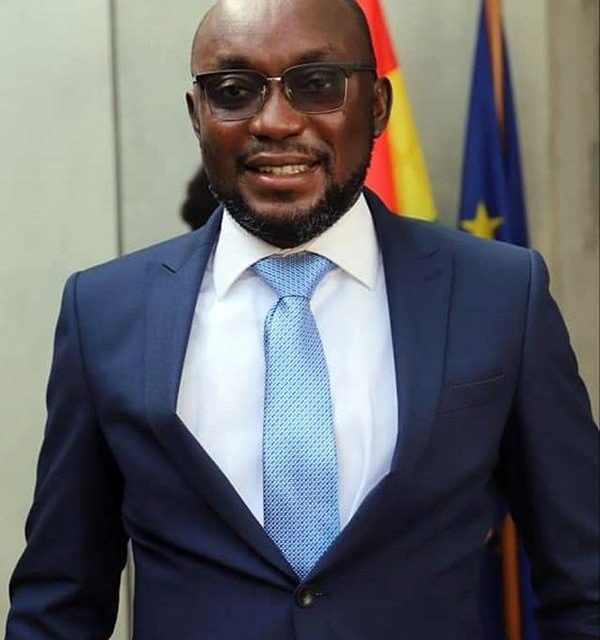In an era when the big talk all over town is Artificial Intelligence, robotics and infotech innovations, the last thing on the lips of many people is an abstract called Philosophy. Often, innovation and creativity do not require complex thought processes and reinventing the wheel. All it takes is the adoption of simple and fundamental philosophies that have worked in many places to achieve societal goals, a good reason to always revisit the basics.
As a ‘bystander at the switch’, I have witnessed many elections since the coming into force of the 1992 Constitution, or at least a greater number of them. We often see politicians targeting delegates as the sole means of winning political power. I have witnessed the distribution of ‘bentua’ growing up in oil palm plantations in Kwaebibirem. In those days of less digital platforms, the biggest ‘eish’ was to distribute wasteful flyers that were later found littering our communities when the elections were over. Politicians had by large, directed their attention only to the electorates in classical ‘Jim in the Jungle’ acts of heroism to gain popularity and rise to fame.
Politicians have advanced the strategies to win both local and national elections further, from alleged vote buying to who can insult or assign cronies to do so on their behalf using the media and other digital spaces.
Indeed, I have seen quite a rough terrain as a bystander! It is this uneasiness that I find in Foot’s and Thomson’s trolley dilemma of what is morally permissible for participating in the so called ‘dirty’ politics of our time; sharing money, distributing ‘bentua’, resorting to rage and insults as means of buying into the vulnerabilities of our electorates.
I find it quite charming in the deeds and works of Dr. Kinglsey Agyeman in nearly 10 years of consistently and persistently adopting the utilitarian principle that to achieve the utmost good and total happiness of the society, as the surest way for politicians to win the hearts and minds of the people, education should be accessible to every child in his constituency. I have found reason in his steady progress to renew my thinking that the pitfalls in utilitarianism have no answers. In my view, if utilitarians making ethical decision in the Foot’s and Thomson’s trolley would advocate the sacrifice of one man’s effort to divert the trolley to avoid a greater casualty to many, then it defeats the ideals and foundation of utilitarianism, which does not avoid a zero net effect casualty to every life. This probably makes a good reason for the ‘bystander’ ethical deontology, that frightens many of our countrymen who are genuinely qualified to get involved with politics. I am not surprised therefore, that there are many people who are, on ethical grounds, scared of getting into politics because they have no cash to share, no ‘bentua’ to distribute’ and or cannot stand the insults and public ridicule that have characterized our political landscape.
Driving my points home, Dr. Agyemang barely makes himself available to mainstream media to champion his many progressive ideas in his constituency. His projects do not target delegates or electorates directly, a deviation from traditional populist political strategy in Ghana. The media visibility of his projects and achievements in his constituency only go as far as the photo galleries and short briefs on his Facebook wall to update his followers. His post on September 2, 2022, is worth some highlights. I agree in his concluded position that children should not be hindered to realize their full potential because of their background. For the purposes of emphasis, he wrote on his Facebook wall on that day that “I am determined to go to any extent to ensure that every child, as far as my hands can reach, succeeds against all odds and the best way to do this is through education.”
I had initially assumed that this is another political gimmick that has served as a driving tool for politicians to ascend to power. It is in his ability to prove me wrong over time that has compelled me to put pen on paper to admit that in my lifetime, a politician can commit himself to a course and deliver to near perfection.
The ‘Power to Empower’ theme did not become a mere slogan or a hashtag of some sort, it actualized into a political philosophy, a systemic strategy in which the focus area was to eradicate illiteracy, by leaving no child in his constituency either behind or half baked in the quest to improving the standard of education in the Abuakwa South Constituency.
The Kingsley Science and Math Quizzes for JHS became more pronounced as weeks unfolded into months and seasons. Long before cooking competitions gained some traction on social media to break Guinness World Records, the ‘Kinglsey Readathon’ for primary schools was inculcating the spirit of spelling and command over English language in pupils in the constituency.
As though these were not motivating enough, the height of his efforts to champion the course of educating the youth in his constituency, was the annual career guidance and counselling sessions for Senior High Schools, where he convened resource persons in diverse areas to prepare the minds and pathways of final year students. For an ex-university recruiter, the common mistakes I have found students transitioning from senior high schools to universities make are the selection of courses, career progression pathways and its related motivating factors.
These interventions are in no way trivializing the efforts of GES in the constituency. All the efforts of this gentle politician are done in close consultation with all stakeholders on all levels. In my view, this political strategic targeting does not draw beneficiary lines as it does not discriminate against party colors.
These strategic interventions have added experiential and experimental ethos to the existing theoretical teaching and learning models. Indeed, Neo-Marxists like Antonio Gramsci, a proponent of educational reforms, share in this view that elementary education principles require theory to meet practical which is the idea and the fact of work in the real world.
I will conclude with comments from one Maxwell Tufour on Facebook reminding Dr. Agyemang not to abandon these good initiatives when he wins the parliamentary seat. It is often easy to continue with a good plan to win power, keeping an eye on the ball after victory lies in the hurdles. I will encourage the calm politician to remain relentless in his efforts to persist in his quest to champion these initiatives in his lifetime as an educator and a politician. As politicians get too busy with state functions, they lose their hold on touching base with their grassroots. It becomes difficult to be divisible at all places to carry every vision and project to the latter. This is where I will recommend that he engages his core team who are inspired by his vision to continue to work in close consultation with relevant stakeholders to soldier on as he climbs to higher heights.
Writer: Ebenezer Amponsah Lartey, BSC, LLB, LLM,





